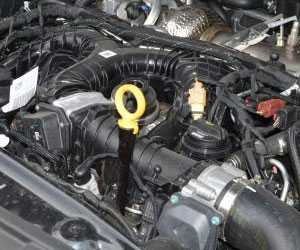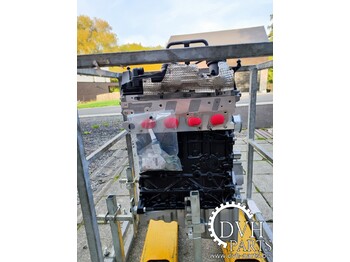Crucial Factors To Consider and Tips for Choosing the Right Engine for Your Requirements
Picking the ideal engine is a multifaceted choice that requires mindful factor to consider of numerous elements to make certain optimal efficiency for your details demands - amarok engine for sale. Recognizing your intended application is paramount, as the demands of business, industrial, or entertainment usage will dramatically influence your choice. In addition, evaluating key specs such as horse power, gas, and torque performance, along with upkeep demands and budget plan restraints, will assist you toward a lasting investment. The ins and outs of engine option expand beyond these basics, prompting a closer assessment of important aspects that can inevitably impact your fulfillment and success.
Determine Your Function
Establishing your objective is a vital initial step in picking the ideal engine for your requirements. Understanding the specific application you want will certainly assist your decision-making process and make sure that you pick an engine that straightens with your functional demands. Whether you require an engine for an industrial automobile, commercial equipment, or a recreational project, each scenario demands various efficiency characteristics and capabilities.
Take into consideration the environment in which the engine will certainly run. Will it be subjected to heavy tons, extreme temperature levels, or long term usage? Evaluating these variables will help you determine the needed power result, fuel performance, and durability required to satisfy your objectives.
In addition, think concerning the long-lasting ramifications of your selection. Spending plan restraints, maintenance needs, and accessibility of components are vital considerations that will affect your total contentment and operational performance.
Eventually, articulating your purpose will certainly simplify the option process and equip you to make an educated choice. By clearly specifying your goals, you can evaluate possible engines more successfully and pick one that not just fulfills your present requirements yet likewise sustains your future objectives.
Evaluate Engine Specifications
As soon as you have actually clearly articulated your objective, the next action is to assess engine requirements. This process involves a thorough assessment of numerous technical details that can considerably influence efficiency and viability for your intended usage.
Begin by examining the engine's horsepower and torque scores. Horsepower is crucial for identifying the engine's capability to perform job, while torque is essential for comprehending just how well it can take care of heavy lots or velocity. Additionally, consider the engine displacement, as it often correlates with power outcome and efficiency.
Next, examine the engine typeâEUR" whether it is a fuel, diesel, or alternative gas engineâEUR" as each type has distinctive characteristics and applications. Take note of the engine's arrangement (e.g., inline, V-type), as this can impact dimension, weight, and total efficiency.
Another essential element is the engine's cooling system, which can influence reliability and maintenance needs. Examine the supplier's credibility and guarantee offerings, as these can supply understandings into long-lasting efficiency and support. Thoroughly why not try this out reviewing these specs will certainly assist ensure that you select an engine that lines up with your operational goals and details requirements.
Consider Gas Efficiency
Fuel efficiency is a vital element to think about when choosing an engine, as it directly impacts functional expenses and environmental sustainability. An engine's fuel performance is generally determined in miles per gallon (MPG) for automobiles or in particular fuel usage (SFC) for airplane and aquatic engines. Higher fuel effectiveness not only reduces the amount of gas consumed but likewise minimizes greenhouse gas emissions, making it an accountable selection for eco-conscious consumers.
When reviewing engine choices, it is vital to examine the driving conditions and planned usage. Engines optimized for freeway driving may show much better gas check my source effectiveness contrasted to those made for stop-and-go web traffic. Additionally, take into consideration the engine's innovation, such as turbocharging or crossbreed systems, which can significantly boost gas efficiency.

Assess Maintenance Requirements

Some engines might need even more regular oil modifications, filter substitutes, or specialized maintenance, which can affect your functional downtime. Engines with extensive popularity commonly have better parts accessibility, decreasing lead times throughout repairs.
Another important element is the technological know-how needed for upkeep. Some engines may demand specialized training for professionals, which can limit your options investigate this site for service suppliers. In addition, examine whether the engine's style permits simple accessibility to elements often needing upkeep, as this can substantially influence labor prices.
Spending Plan Your Investment
Understanding upkeep demands is just one element of selecting the best engine; financial considerations play an equally vital role (amarok engine for sale). Establishing a clear spending plan is crucial, as it affects not only the first acquisition rate however also lasting functional expenses
When budgeting, take into consideration both the upfront costs and recurring costs such as fuel effectiveness, maintenance, and possible fixings. An apparently inexpensive engine might incur greater costs gradually because of inadequate fuel economic situation or constant maintenance needs. In addition, examine the schedule and price of spare components, along with the service warranties provided by makers, which can give monetary security versus unpredicted costs.
It is additionally smart to consider potential funding choices or renting setups, which can reduce instant economic burdens. Stabilize your wish for innovative features with your budget restraints, making certain that you buy an engine that fulfills your performance needs without endangering monetary security.
Ultimately, a well-shaped budget will certainly equip you to make educated decisions, straightening your engine selection with both your functional needs and financial capabilities, resulting in a more sustainable investment over time.

Conclusion
In conclusion, picking the suitable engine requires a complete understanding of particular requirements and applications. Mindful examination of engine requirements, gas efficiency, and maintenance needs is vital for educated decision-making.
Fuel performance is an essential variable to think about when picking an engine, as it straight affects functional costs and environmental sustainability. An engine's gas efficiency is normally gauged in miles per gallon (MPG) for vehicles or in particular fuel usage (SFC) for airplane and marine engines. Diesel engines typically provide better fuel effectiveness than fuel engines. Ultimately, picking an engine with a strong focus on fuel effectiveness can lead to significant long-lasting financial savings and add favorably to ecological initiatives. Cautious examination of engine specs, fuel performance, and upkeep requirements is necessary for notified decision-making.